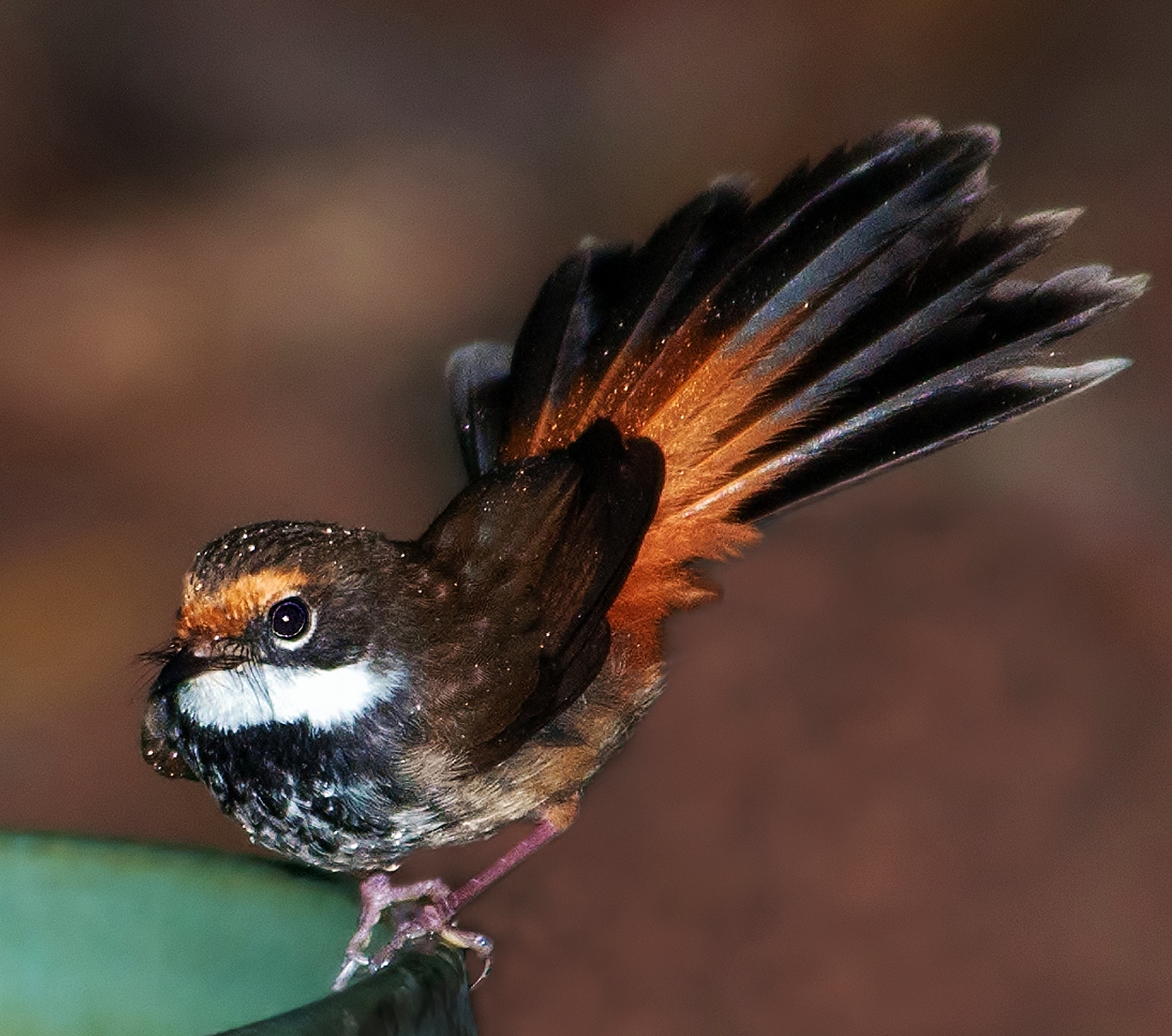Rhipidura rufifrons
 |
| Photo by T. Oliver (Birds in Backyards) |
Common name:
rufous fantail (en); cauda-de-leque-ruivo (pt), rhipidure roux (fr); cola de abanico rufo (es); fuchsfächerschwanz (de)
Taxonomy:
Order Passeriformes
Family Rhipiduridae
Range:
The rufous fantail is found in northern and eastern coastal Australia, being more common in the north. It is also found in New Guinea, the Solomon Islands, Sulawesi and Guam.
Size:
These birds are 15-16 cm long and weigh 10 g.
Habitat:
They are generally found in rainforests, monsoon forests, mid-mountain forests, riparian vegetation, swamp woodlands, wet eucalypt forest and mangroves. During migratory movements they can also be found in urban areas.
Diet:
Rufous fantails are insectivorous, gleaning the middle and lower levels of the canopy for a wide range of insects.
Breeding:
These birds breed in October-February. They build a small, compact, cup nest, made of fine grasses bound with spider webs, that is suspended from a tree fork about 5 m above the ground. The female lays 2-3 cream eggs with brown spots, which are incubated by both sexes for 14 days. The chicks are fed by both parents and fledge 13-15 days after hatching. Each pair may raise 1-2 broods per season.
Conservation:
IUCN status – LC (Least Concern)
This species has a very large breeding range and, although the global population size has not been quantified, the species is reported to be uncommon to locally very common. This population is suspected to be in decline owing to the loss of habitat used for breeding and migration corridors, but overall it is not considered threatened at present.







